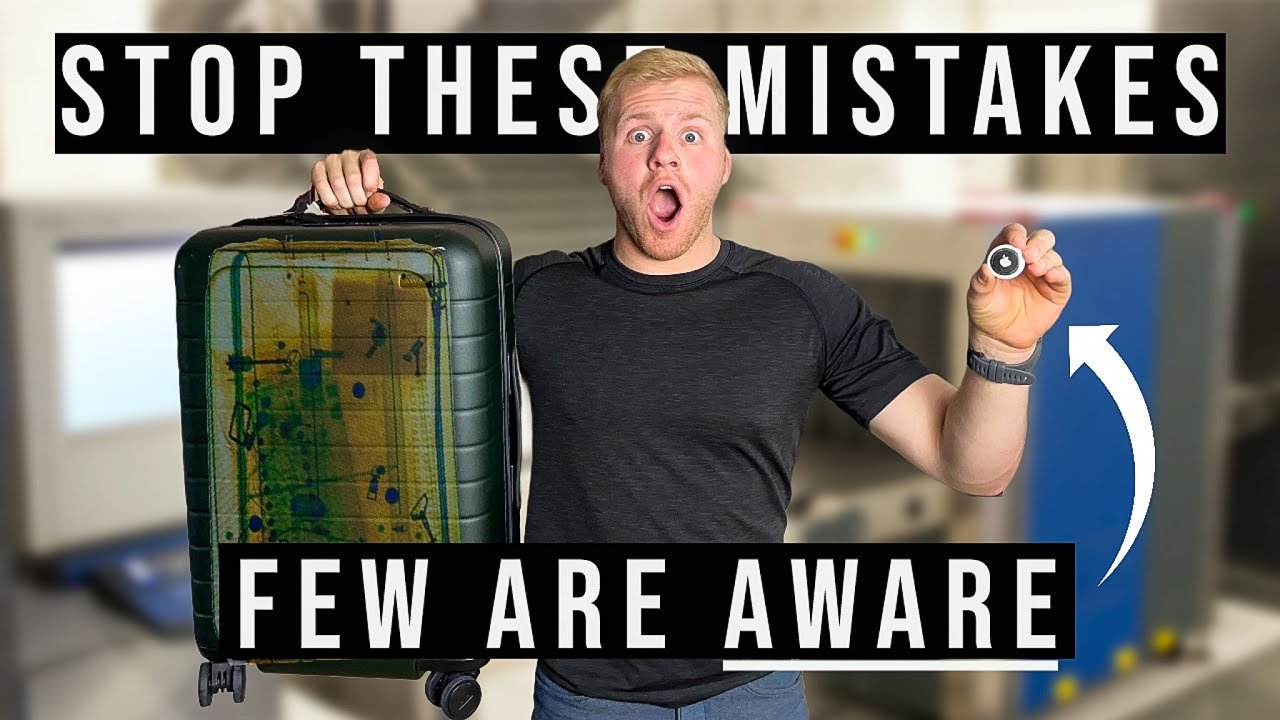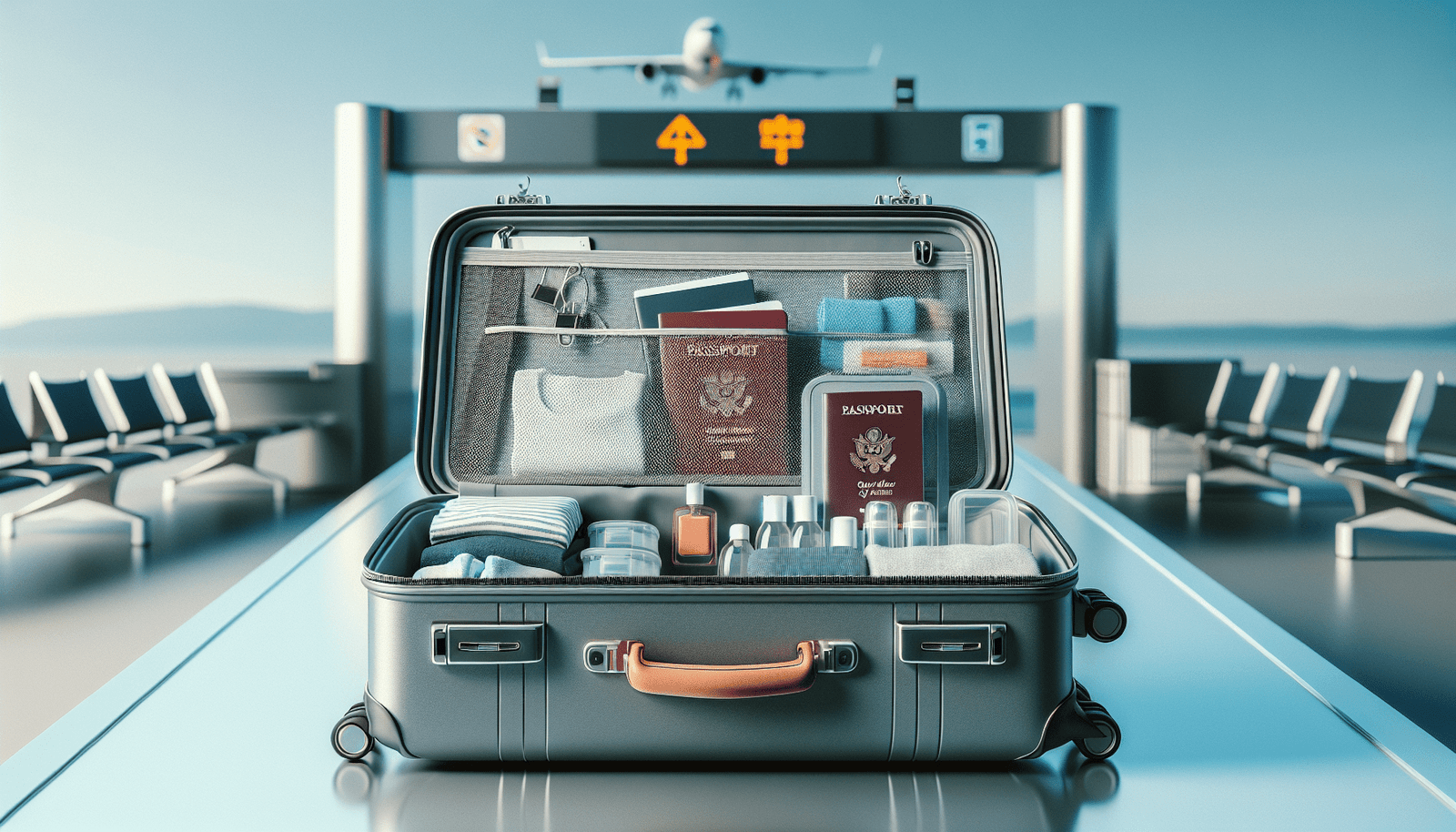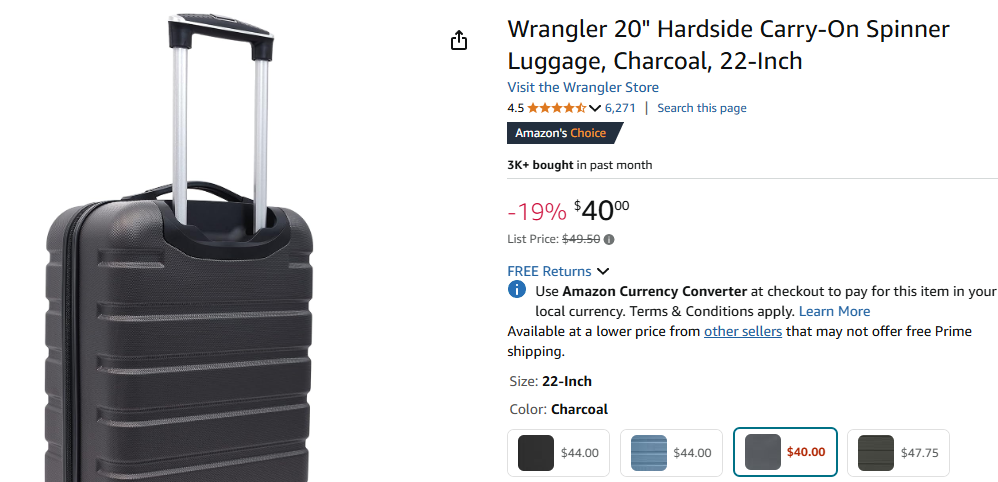Your upcoming travel experience can be smooth and hassle-free by avoiding major packing mistakes with TSA rules. The Travel Coaches have created a video titled “Things to NEVER Pack in a Checked Bag (14 TSA Rules and Tips)” that aims to guide you through the essential dos and don’ts for packing checked luggage. This cheat sheet covers everything from prohibited items to useful tips on what to pack in carry-on bags, ensuring you remain compliant with TSA regulations and enjoy a less stressful journey.
You’ll find detailed advice on items like important travel documents, medications, and electronics, along with specific restricted items such as wrapped gifts, meat, and produce. By familiarizing yourself with these guidelines, you can prevent common packing errors and focus more on enjoying your travel. The video also offers additional tips on finding cheap flights, packing toiletries, and avoiding issues in TSA lines, making it a comprehensive resource for travelers. Don’t forget to subscribe to The Travel Coaches for continuous travel tips and support through your adventures.

This image is property of i.ytimg.com.
Understanding TSA Rules
Understanding the Transportation Security Administration (TSA) rules is crucial for smooth and safe travel. These guidelines ensure that security measures are met while also helping you avoid unnecessary delays and hassles during your journey.
Why TSA Rules Matter
You might wonder why TSA rules matter so much. Well, the TSA rules are designed to protect all passengers and crew members from potential threats. By following these guidelines, you help maintain safety and efficiency within the airport and during the flight. Ignoring these rules can lead to confiscation of items, fines, and even delays that could affect your travel plans.
Common Misconceptions about TSA Guidelines
Common misconceptions can lead to unnecessary frustration. Many travelers believe that certain items are permissible when they are not. For example, some think that as long as their liquids are in a suitcase, they don’t need to follow the 3.4-ounce rule. Clarifying these misconceptions can save you time and prevent the loss of possessions.
Items Not to Pack in Checked Luggage
Now, let’s go over some specific items you should never pack in your checked luggage. Even though a checked bag seems like a safe place, there are several reasons why some items are better kept in your carry-on or entirely left out.
Travel Documents
Keep your travel documents such as your passport, visas, and identification in your carry-on. These are necessary for you to proceed through the airport and claim your baggage at your destination. Losing these documents in checked baggage can cause significant delays and stress.
Cash and Credit Cards
Cash, credit cards, and checkbooks should never be packed in your checked luggage. These items are not only essential for your trip but also highly susceptible to theft or loss. Always carry these on your person or in your carry-on to ensure you have access to funds whenever necessary.
Medications
Medications should always be in your carry-on, especially prescription ones. It’s recommended to keep them in their original containers to avoid any confusion or suspicions during security checks. This ensures that you’ll have access to your medications throughout your trip, even if your checked bag is delayed or lost.
Toiletries
While large toiletries (over 3.4 ounces) should be packed in your checked bag to comply with liquid restrictions in carry-ons, consider keeping essentials like toothbrushes, toothpaste, and deodorant in your carry-on. This is especially useful if your checked luggage is lost or delayed; you’ll still have what you need to freshen up.
Electronics
Electronics such as laptops, cameras, tablets, and any items with lithium-ion batteries should not be packed in checked luggage due to safety risks. There is a possibility of these devices getting damaged or, in rare cases, causing fires. Keeping them in your carry-on allows you to take better care of them.
Valuables (Jewelry and Souvenirs)
Items of significant value, like jewelry or special souvenirs, should never be packed in checked baggage. There is always a risk of theft or loss, and keeping these items in your carry-on ensures they are under your supervision at all times.
Specific Restricted Items
Several specific items are strictly restricted by TSA guidelines. Packing any of these in your checked baggage could lead to complications or even penalties.
Wrapped Gifts
While it’s tempting to pre-wrap gifts before traveling, wrapped gifts are not a good idea in checked luggage. TSA will need to see what’s inside, and if they can’t easily identify an item, they may unwrap it or even confiscate it. Using gift bags is a practical alternative.
Meat and Produce
Transporting fresh meat and produce internationally is often prohibited to prevent the spread of diseases. Even domestically, some restrictions apply, and failing to adhere to these could result in fines or confiscation of goods.
Matches and Lighters
Matches and lighters are considered flammable items and pose a fire risk. Therefore, they’re prohibited in checked baggage. Carry a maximum of one lighter and a pack of safety matches in your carry-on, following the TSA’s specific guidelines.
Firearms
Firearms can be transported, but they must be packed correctly—in a hard-sided, locked container and declared at check-in. Ammunition must be packed separately, and you must follow airline-specific rules as well as TSA regulations.
Bleach
Bleach is extremely hazardous due to its chemical nature and is strictly prohibited in both carry-on and checked luggage. Bleach can cause toxic fumes or reactions, leading to dangerous situations in flight.
E-cigarettes and Vape Pens
E-cigarettes and vape pens should never be packed in checked luggage due to the lithium batteries they contain, which pose fire risks. These should always be kept in your carry-on.
Medical Marijuana
While some states allow medical marijuana, it’s still federally regulated. Items with less than 3% THC may be permissible, but always check both your departure and arrival state or country regulations. Generally, it’s safer to avoid traveling with it.
High-Alcohol Content Liquor
Liquor with over 70% alcohol content is not allowed in checked luggage due to its flammability. Be mindful of alcohol content restrictions when packing any alcoholic beverages.
Carry-On Packing Guidelines
Packing your carry-on bag correctly is equally crucial. Knowing what you can and cannot bring will save you from hassle during security screenings.
Allowed Items
Items allowed in your carry-on include small electronics, essential toiletries (under 3.4 ounces), medications, travel documents, and valuables. Stick to the TSA guidelines to ensure smooth security checks.
Prohibited Items
Prohibited items in your carry-on include large toiletries, sharp objects (such as knives or scissors longer than 4 inches), firearms, and any flammable materials. Always double-check the TSA list of prohibited items before packing.
Liquid Restrictions
Liquids in your carry-on must adhere to the 3-1-1 rule: each liquid must be in a container of 3.4 ounces or less, all containers must fit in a single 1-quart-sized, clear, resealable plastic bag, and each passenger is allowed one bag. Exceptions are made for medications and baby food.

TSA Lines: Dos and Don’ts
Going through TSA lines can be a breeze if you follow some simple dos and don’ts.
Arrive Early
Always plan to arrive at the airport at least two hours before a domestic flight and three hours before an international one. This gives you plenty of time to get through security without stress.
Preparation for Screening
Prepare for screening by having your travel documents and boarding pass ready. Wear easily removable shoes, and ensure all liquids are packed according to regulations. If you’re carrying electronics, be ready to remove them from your bags.
Avoiding Common Pitfalls
Avoid common pitfalls by being aware of TSA regulations in advance. Don’t try to sneak prohibited items through security, and avoid wearing excessive jewelry or metal that could set off detectors. Understanding and adhering to the rules can save you a lot of time.
Engage with TSA Resources
Leveraging tsa resources is an excellent way to stay informed and make your travel experience smoother.
TSA Website
The TSA website is a valuable resource for information on packing guidelines, prohibited items, and travel tips. Regularly check the site for updates to ensure you’re always compliant with the latest rules.
Social Media Channels
Follow TSA on their various social media channels. They frequently post updates, travel tips, and answer common questions, providing a lot of useful information.
#asktsa
Use the #asktsa hashtag on social media platforms like Twitter when you have specific questions. TSA representatives are active on these channels and can offer quick and precise answers to your queries.

Avoiding Airport Mistakes
To avoid airport mistakes, a little preparation and knowledge go a long way.
Double-Check Your Bag
Before leaving for the airport, double-check your carry-on and checked luggage to ensure no prohibited items are packed. This quick step can save you a lot of headaches later.
Know Your Airline’s Rules
Each airline might have specific rules and regulations in addition to TSA guidelines. Be sure to check your airline’s website for any rules regarding baggage, check-in procedures, and carry-on allowances.
Be Ready for Security Checks
Being ready for security checks means having your documents handy and following all preparation steps mentioned earlier. This will help you move through security quickly and without any issues.
Unwritten Rules of Flying
Flying comes with its own set of unwritten rules that, when followed, can make the experience more pleasant for everyone.
Etiquette in the Airport
Airport etiquette includes being mindful of your surroundings, such as keeping your voice low, not blocking walkways, and being courteous to TSA agents and other travelers. Patience and politeness go a long way.
Behavior on the Plane
On the plane, be considerate of fellow passengers. This includes sharing armrests, keeping your area clean, and using headphones when listening to music or watching videos. Also, try to minimize disruptions by only getting up when necessary.
Handling Delays and Cancellations
Delays and cancellations are an unfortunate reality of air travel. Handling them with patience and flexibility can greatly reduce stress. Always keep an eye on updates from your airline and know your rights regarding compensation or rebooking.
Tips for Cheap Flights
Finding cheap flights can be challenging but rewarding. Here are some tips to make it easier.
Using Google Flights
Google Flights is a powerful tool for finding cheap flights. It allows you to compare different airlines, set price alerts, and find the best deals for your chosen dates and destinations.
Flexible Travel Dates
Flexibility is key when trying to find cheap flights. If you’re able to travel on different dates or at different times of the day, you can often find significantly lower fares.
Alternative Airports
Consider flying into or out of alternative airports. Sometimes smaller or nearby airports offer cheaper flights and can also save you time and money, even if they require a bit more ground travel.
Conclusion
Recap of Key Tips
To recap, avoid packing essential travel documents, cash, credit cards, medications, toiletries, electronics, and valuables in your checked luggage. Be mindful of TSA rules regarding specific restricted items like wrapped gifts, meat and produce, matches and lighters, firearms, bleach, e-cigarettes, medical marijuana, and high-alcohol content liquor. Follow carry-on packing guidelines to ensure compliance and smooth travel.
Encouragement to Stay Updated on TSA Rules
Staying updated on TSA rules and guidelines is critical as they can change. Always use TSA resources like their website and social media channels for the most current information.
Invite to Subscribe and Engage for More Tips
Lastly, if you found these tips helpful, don’t forget to subscribe for more travel tips and updates. Engage with us via comments or social media—your experiences and questions help everyone travel better. Safe travels!
Some of the links on this site are affiliate links, which means I may earn a small commission if you click on them and make a purchase, at no additional cost to you. As an Amazon Associate, I earn from qualifying purchases.

